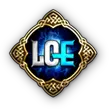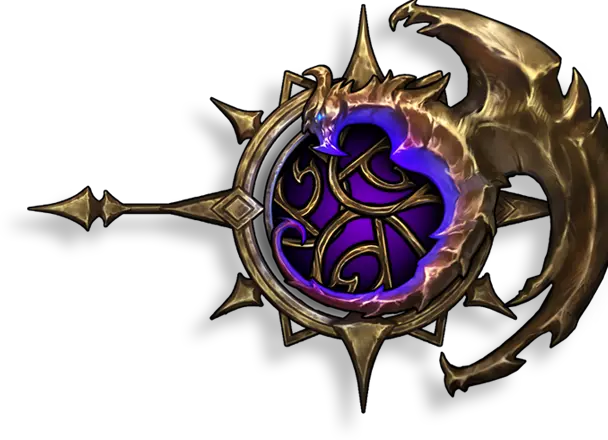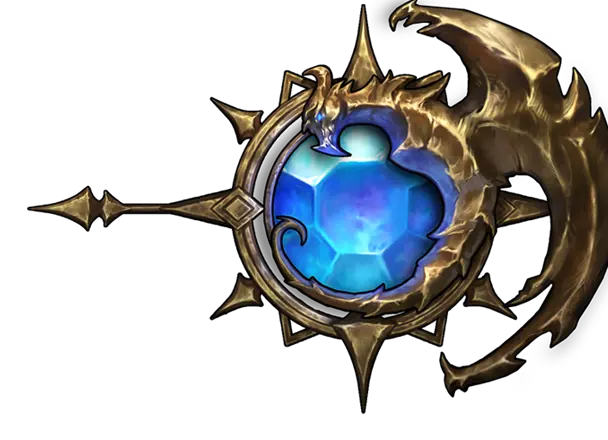Legends of Elysium vs The Gathering (MTG)
Magic: The Gathering (MTG): An In-Depth Analysis
Tactics in Magic: The Gathering
In the realm of Magic: The Gathering, tactical prowess is paramount. Each decision, from casting spells to deploying creatures, demands acute awareness of the battlefield’s immediate state. Mastery over the stack, precise timing of instant-speed interactions, and the strategic use of combat tricks can decisively influence the outcome of a duel.
Key Tactical Features:
- Instant-Speed Interactions: The ability to cast spells during an opponent’s turn enables players to counter threats or bolster defences unexpectedly.
- Combat Tricks: Spells that enhance creatures during combat can turn the tide of battle, catching adversaries off-guard.
- Stack Management: Understanding and manipulating the order of spell and ability resolutions allows for optimal tactical plays.
Strategy in Magic: The Gathering
Beyond immediate tactics, MTG demands long-term strategic planning. Constructing a synergistic deck, anticipating opponents’ moves, and adapting to the evolving metagame are essential for achieving victory.
Key Strategic Elements:
- Deck Building: Crafting a cohesive deck that balances mana resources, threats, and answers is fundamental to strategic success.
- Metagame Awareness: Staying informed about prevalent deck archetypes and strategies allows players to tailor their decks to counter popular trends.
- Resource Management: Efficient utilisation of mana and careful hand management ensure sustained pressure and adaptability throughout the game.
Collectible Aspect in Magic: The Gathering
MTG’s rich collectible nature is a cornerstone of its enduring appeal. With thousands of unique cards spanning diverse sets and expansions, players and collectors alike are drawn to the pursuit of rare and powerful additions to their collections.
Key Collectible Features:
- Expansive Card Pool: A vast array of cards from numerous sets offers endless possibilities for deck construction and collection.
- Rarity System: Cards are categorised by rarity—common, uncommon, rare, and mythic rare—adding layers of value and desirability.
- Special Editions: Limited print runs, promotional cards, and unique artworks enhance the collectible allure of the game.
Trading Aspects in Magic: The Gathering
As a pioneer in trading card games, MTG fosters a vibrant secondary market where players can buy, sell, and trade cards. This dynamic economy enables the acquisition of specific cards to complete decks or collections.
Key Trading Features:
- Active Secondary Market: A robust marketplace facilitates the exchange of cards, reflecting their fluctuating values.
- Card Value Appreciation: Certain cards appreciate over time, offering potential investment opportunities for collectors.
- Community Engagement: Trading fosters interaction within the player community, enhancing the social aspect of the game.
Gameplay Mechanics in Magic: The Gathering
MTG’s gameplay is distinguished by intricate mechanics that provide depth and complexity. The interplay of various card types, abilities, and the innovative mana system creates a multifaceted gaming experience.
Unique Gameplay Mechanics:
- Mana System: The utilisation of five distinct colours of mana introduces strategic diversity and deck-building challenges.
- Card Types and Abilities: A wide range of card types—creatures, instants, sorceries, enchantments, and more—each with unique abilities, contribute to complex gameplay interactions.
- Phases and Priority: The structured turn sequence and priority system require careful planning and timing of actions.
What Sets Magic: The Gathering Apart
- Innovative Mechanics: MTG continually introduces groundbreaking mechanics that redefine gameplay and strategy. For instance, the Ward mechanic adds a defensive layer, requiring opponents to pay extra costs to target warded creatures, thereby enhancing strategic depth. :contentReference[oaicite:0]{index=0}
- Rich Lore and World-Building: An expansive multiverse with compelling storylines enriches the gaming experience, fostering a deep connection to the game’s narrative.
- Competitive Scene: A well-established competitive circuit, including tournaments and professional play, offers players opportunities to showcase their skills on a global stage.
In conclusion, Magic: The Gathering distinguishes itself through a harmonious blend of tactical depth, strategic complexity, and a rich collectible and trading ecosystem. Its innovative gameplay mechanics and immersive lore continue to captivate players, solidifying its status as a leader in the trading card game genre.
Legends of Elysium compared to Magic: The Gathering (MTG) – Gameplay Mechanics
Legends of Elysium (LoE) elevates traditional TCG gameplay by fusing card mechanics with a dynamic hex-based board, creating a tactical layer unseen in Magic: The Gathering (MTG). While MTG revolves around card-based strategy with phases and priority systems, LoE demands mastery of both deck-building and spatial control. Players must manage land terraforming on a hexagonal board to create suitable battlegrounds for their cards, making each game an evolving puzzle. This dual-layered approach combines strategic deck synergy with real-time board control, offering players multiple pathways to victory beyond traditional card duels. Additionally, LoE’s emphasis on terrain control and unit positioning introduces fresh challenges where tactical movement and card interactions become equally critical, pushing the boundaries of what TCGs can achieve.
- Hex-Based Board Dynamics: Unlike MTG’s flat play zones, LoE’s board requires players to shape their battlefield, turning abstract strategy into a tangible, spatial challenge.
- Unit Movement and Terrain Control: Players in LoE must not only summon units but also position them effectively to control key hexes, blending card mechanics with tactical combat.
- Adaptive Gameplay: Every turn in LoE demands quick tactical adjustments as players must react to shifting board states while maintaining long-term strategic goals.
While MTG’s strength lies in its intricate card interactions and resource management, LoE distinguishes itself by incorporating board game elements that add new layers of depth to every match. For players seeking a fresh challenge, this hybrid gameplay mechanic makes Legends of Elysium a revolutionary step forward in the evolution of card-based games.
Legends of Elysium like Magic: The Gathering (MTG) – Similarities
Both Legends of Elysium (LoE) and Magic: The Gathering (MTG) share foundational mechanics that make them quintessential TCG experiences. At their core, both games revolve around deck building, mana management, and turn-based combat, creating a battlefield where strategy reigns supreme. Players in both games must carefully construct their decks with cards of varying rarities, balancing spells, units, and resources to outmanoeuvre their opponents. The concept of card rarity—from common to mythic—adds a layer of excitement to collecting powerful cards, a beloved feature of both games. Additionally, both games require resource management, with LoE utilising land control on a hexagonal board and MTG focusing on tapping lands for mana. Both games also encourage mastery of timing, knowing when to unleash powerful spells or hold back for tactical advantage. Finally, the heroes or avatars in both games add personalisation to gameplay, granting unique abilities that influence a player’s strategy and playstyle. This shared core makes LoE feel familiar to veteran TCG players while introducing fresh mechanics to enrich the experience.
- Deck Building and Card Synergies: Players construct their decks with carefully selected cards to achieve powerful combinations.
- Resource Management: Both games feature mana systems, requiring players to balance resource allocation throughout the match.
- Turn-Based Combat: Players take turns playing cards, activating abilities, and executing strategic attacks.
- Card Rarity and Collectibility: Cards in both games are categorised by rarity, making collecting and building decks a rewarding process.
- Hero Selection: Unique heroes or avatars in both games grant passive bonuses or special abilities that influence deck-building choices and gameplay strategies.
These shared elements make the transition between MTG and LoE seamless, allowing seasoned TCG players to apply their expertise while embracing the fresh challenges and innovations offered by Legends of Elysium.
Legends of Elysium vs Magic: The Gathering (MTG) – Key Differences
While Legends of Elysium (LoE) and Magic: The Gathering (MTG) share core TCG elements, their execution diverges significantly, making LoE a fresh experience for seasoned players. One of the most notable differences is LoE’s unique hex-based board, where terrain control directly impacts gameplay. Unlike MTG, where battles unfold within abstract zones, LoE introduces a tangible battlefield that requires players to strategically terraform land to cast cards and gain positional advantages. This tactical layer blends traditional card mechanics with spatial awareness, creating dynamic, ever-changing game states that demand adaptability. Furthermore, LoE incorporates multiple paths to victory, such as controlling key hexes or completing objectives, whereas MTG predominantly focuses on depleting an opponent’s life total. Additionally, LoE’s use of blockchain technology grants players true ownership of their digital assets, including cards and heroes, which can be traded or staked for in-game rewards—an innovation that MTG’s traditional physical and digital formats lack. Finally, while MTG relies on its extensive lore across multiple planes, LoE immerses players in the rich, interconnected world of Elysium, where each hero’s story directly influences the evolving narrative and gameplay options.
- Hex-Based Board Control: LoE’s dynamic battlefield introduces terrain mechanics that influence gameplay, unlike MTG’s flat play zones.
- Multiple Victory Conditions: LoE offers various win paths beyond simply reducing an opponent’s life total, promoting diverse strategies.
- Blockchain Integration: Players in LoE own their cards and assets, which can be traded or staked for in-game benefits, a concept absent in MTG.
- Interactive Narrative: LoE’s world of Elysium evolves through player actions, embedding storytelling into gameplay, unlike MTG’s separate narrative arcs.
These distinctions set Legends of Elysium apart, offering a more immersive and strategic experience that extends beyond traditional TCG conventions. For players seeking innovation and deeper tactical engagement, LoE presents a bold, new frontier.
Tactic and Strategy in Legends of Elysium
In Legends of Elysium (LoE), mastering tactics and strategy is essential to achieving victory. Unlike traditional TCGs, where card interactions dominate, LoE requires players to balance short-term tactical decisions with long-term strategic planning on a dynamic, hex-based board. Tactical gameplay revolves around resource management, unit positioning, and controlling key hexes on the board. Each decision—be it casting a spell, summoning a unit, or reshaping the terrain—has immediate consequences that ripple across future turns. Meanwhile, strategic depth emerges from the deck-building phase, where players must craft synergistic combinations tailored to both their hero’s abilities and the board’s evolving state. Success in LoE demands that players adapt to unforeseen challenges, anticipate their opponent’s moves, and take advantage of terrain features to gain the upper hand. Unlike Magic: The Gathering (MTG), where a well-timed card can turn the tide of a match, LoE emphasises the importance of spatial control, making it a game of wits where each hex conquered brings players one step closer to triumph.
- Short-Term Tactics: Players must make quick decisions on board control, such as where to terraform or position units for maximum impact.
- Long-Term Strategy: Deck-building is influenced by the hero’s abilities and the board’s terrain, encouraging foresight in crafting a plan for victory.
- Adaptability: LoE rewards players who can adjust their tactics as the board state changes, making every game a unique strategic challenge.
- Multiple Paths to Victory: Beyond defeating the opponent, players can win by controlling critical hexes or completing specific objectives, making LoE a multifaceted experience.
LoE’s combination of tactical board control and strategic deck-building creates a richer, more immersive gameplay experience, where foresight and adaptability are just as important as the cards in a player’s hand.
Legends of Elysium as Alternative to Magic: The Gathering (MTG)
For adventurers seeking a bold new challenge beyond the realms of Magic: The Gathering (MTG), Legends of Elysium (LoE) presents a compelling alternative that redefines the digital TCG experience. While MTG excels in its traditional card interactions and extensive lore, LoE introduces innovative gameplay through its dynamic hex-based battlefield and multi-layered strategies. What sets LoE apart is its blend of tactical terrain control with traditional deck-building mechanics, ensuring that players are constantly engaged in both card synergies and spatial dominance. Additionally, LoE embraces modern technology with its integration of blockchain-based asset ownership, allowing players to truly own their digital cards, heroes, and collectibles, offering a value proposition MTG’s digital formats lack. Unlike MTG’s focus on long-established archetypes and metagame cycles, LoE empowers players to shape their own destiny by influencing the evolving world of Elysium through their victories. For those yearning to go beyond the familiar and conquer new strategic frontiers, Legends of Elysium stands as a revolutionary step forward in the TCG genre.
- Innovative Hex-Based Board: LoE introduces a tactical layer where terrain control is essential, offering more complexity than MTG’s abstract zones.
- Blockchain Ownership: Players own their assets, with cards and heroes being tradeable and stakeable for in-game rewards.
- Interactive World-Building: Victories in LoE contribute to shaping the ever-evolving narrative of Elysium, a feature absent in MTG.
- Fresh Challenges: LoE provides new strategies, unique paths to victory, and dynamic gameplay that challenge even seasoned MTG players.
Legends of Elysium invites players to embark on an epic journey of strategy, innovation, and ownership. For those ready to evolve beyond the confines of traditional card games, LoE offers a battlefield where every decision leaves a mark on the world.
Conclusion
In the ever-expanding world of trading card games, Legends of Elysium stands as a beacon for players seeking a fresh, immersive, and challenging experience. It is not merely a game; it is a journey into a richly woven fantasy world, where every tactical decision reshapes the fate of Elysium. For those who have mastered the intricacies of Magic: The Gathering and long for new conquests, LoE offers an unparalleled opportunity to engage with complex strategies, dynamic terrain control, and blockchain-powered ownership that empowers players like never before.
This is a battlefield for thinkers, tacticians, and strategists—a place where skill triumphs over luck and creativity flourishes through intricate deck-building and board mastery. Every victory etches your name into the legend of Elysium, and every setback hones your ability to outmanoeuvre future foes. The game’s evolving lore invites players to explore uncharted lands, forge alliances, and leave a lasting impact on the unfolding narrative.
Legends of Elysium challenges you to step beyond the ordinary, embrace complexity, and prove your strategic prowess in a world where every move matters. The question remains—will you rise to the challenge, claim your destiny, and become a legend? The board awaits your command, hero. The time to shape the future of Elysium is now.
| Feature | Legends of Elysium (LoE) | Magic: The Gathering (MTG) |
|---|---|---|
| Gameplay Mechanics | Combines card-based mechanics with a hex-based board, introducing tactical terrain control and dynamic battlefield strategies. | Traditional card-based mechanics with a focus on phases, priority, and stack management, without a spatial board element. |
| Victory Conditions | Multiple paths to victory, including controlling key hexes, completing objectives, or defeating the opponent. | Primarily focused on reducing the opponent’s life total to zero. |
| Asset Ownership | Integrates blockchain technology, allowing players to own, trade, and stake digital assets like cards and heroes. | Physical cards are tradable, but digital assets in MTG Arena are not owned by players and cannot be traded. |
| Strategic Depth | Requires balancing deck-building with terrain control and unit positioning on the hex-based board. | Emphasises deck-building, resource management, and knowledge of the evolving metagame. |
| Lore and Narrative | Rich, evolving fantasy lore where players’ victories impact the world of Elysium and shape its future. | Deep multiverse lore, with storylines tied to various planes and characters, but less directly impacted by gameplay. |
| Player Community | Encourages player-driven development and governance through community feedback and blockchain integration. | Established competitive scene with organised tournaments and events, but without direct player influence on game development. |
| Challenge Level | Designed for players who seek complex tactical challenges and strategic depth, rewarding adaptability and foresight. | Offers both casual and competitive play, with a focus on metagame awareness and tactical card interactions. |







